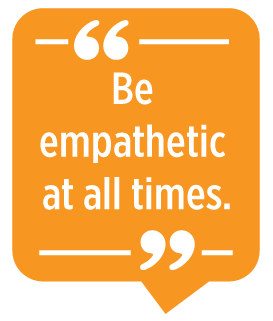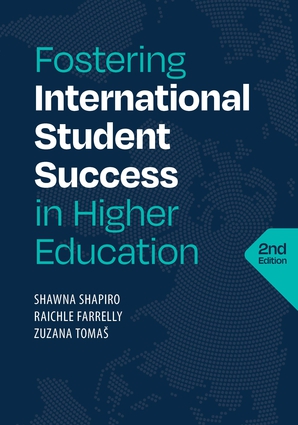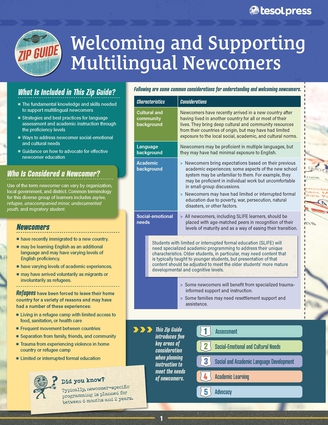Ask a TESOL Leader: "What advice would you give a starting English language teacher?"
by Mawa Samb
Question: "What advice would you give a starting English language teacher?"
I have worked as an instructor, a teacher trainer, and a consultant, in addition to serving as president for the Association of
Teachers of English in Senegal and as a board member for TESOL International
Association. I have been an English language professional for many years, but I
still remember what it was like to be just starting out. I’d like to answer
this question by sharing some anecdotes and tips to empower new English
language teachers—those with little or no experience.
My first tip is to prioritize
professional development. In fact, teachers should and must be
constant learners, and this is even more important when they are new in the
profession. The more a teacher attends conferences, seminars, and workshops,
the more they read English language teaching (ELT) magazines and books, then
the better they can understand the profession and feel ready to face their
students. Teacher learning never does stop, especially in a fast-changing world
like the one we live in. The COVID-19 pandemic offers the best example of this:
Many teachers took early retirement because they felt unprepared to teach
online classes.
 Professional learning may actually be done formally
or informally through personal readings, research, sharing with colleagues, or
experimenting with new techniques. In addition, it’s key to join teachers’
associations to keep updated, become empowered, and seek networking
opportunities.
Professional learning may actually be done formally
or informally through personal readings, research, sharing with colleagues, or
experimenting with new techniques. In addition, it’s key to join teachers’
associations to keep updated, become empowered, and seek networking
opportunities.
My second tip is to be empathetic at
all times. Empathy is currently viewed as a new leadership
skill. It appeals to human qualities; we are humans before being teachers.
There is an anecdote that goes something like this: A student missed a test and
told the teacher that she was sick. The teacher said, “If you don’t take the
make-up test tomorrow, it’s going to be a zero for you.” In this case, instead
of inquiring about the student’s health, the teacher just focused on grades. A
more empathetic approach would mean a teacher having a listening ear, knowing
their students’ background, and treating each student differently according to
their specificities...essentially, showing them that each student matters.
My third tip is in line with empathy, and it also
happens to be the first principle of The
6 Principles for Exemplary Teaching of English Learners®, from TESOL:
“Know your learners.” I once had a student who
used to come late to school. Because of her lateness, her grades suffered, and
all the teachers used to sanction her. Eventually, it was discovered that she
couldn’t afford to pay the bus fare and had to walk 10 kilometers to school each
day. Once the teachers and administration knew about her situation, they were
able to take the necessary steps to serve the student's needs, and she started
coming to school by bus, stopped being late, and improved academically. Knowing
the student and her background enabled her teachers to become better educators;
if we had taken the time to know her sooner, we could have spared her distress
and helped improve her academic outcomes right away.
My fourth tip is to always approach
lesson preparation professionally, do some background research
on your lesson content, and share your plans with more seasoned teachers and
colleagues. During your lesson, if you don’t know the answer to something a
student asks you, be humble. It’s okay to say “I don’t know” and offer to check
and come back with the right solutions.
And finally, I’d like to suggest that you spend
time ensuring you provide equitable assessments.
Your role is to make sure you assess what is taught in a fair and equitable
way, ensuring the validity, reliability, transparency, and security of all
tests. Be sure not to use retired tests (already used), and be fair with all
students, whatever their gender, race, social position, and so on. There are
many resources on the web for creating equitable assessments; here are a few to
start with:
In a frame on the wall of my language institute,
there is an anonymous saying: “To teach is to touch lives, good teachers touch
the lives of many.”
Do you have a question for the TESOL leadership? Email your question to tc@tesol.org with the subject line "Ask a TESOL Leader" and it could be featured in this column!
Dr. Mawa
Samb, Fulbright Exchange Teacher, is
currently a teacher trainer and instructor at the English Language Institute.
He is also a consultant for the Lauder Institute Immersion Program of
Pennsylvania University, the British Council, and the West African Economic and
Monetary Union Baccalaureate exam. He also teaches at Ecole Supérieure
Polytechnique de Dakar in the IT Department. Former Association of Teachers of
English in Senegal president, he has also served TESOL International
Association in various capacities and won a 2016 TESOL Professional Development
Travel Grant for Practicing ESL/EFL Teachers.
TESOL Blogs
Interested in writing a blog for TESOL?
Read the submission guidelines and send us your post!
Check out some of the most recent TESOL Blogs:
|
Project-Based Language Learning for Writing, by Betsy Gilliland

What do the following situations have in common?
- High school students interview senior citizens in their community about what their hometown was like 50 years ago, write up the stories, and create a book that is shared with the elders and with primary school children studying local history.
- University students research the challenges international students at their college face during their first semester, investigate resources available on campus and in town to address those challenges, and create a website that the university’s international student services office can share with prospective students before they arrive.
- Adult immigrant English as a second language students consult with their neighbors about home remedies for common ailments, replicate the remedies and carefully measure the ingredients, and create an interactive ebook with recipes for treating everyday illnesses in culturally diverse ways.
Read more. |
|
Terminology Matters: What Do You Call Your (English) Learners?, by Naashia Mohamed

English learner. Emergent bilingual. Multilingual learner. ESOL student. Dual language learner. Plurilingual learner. If you are in the field of educating students for whom English is an additional language, you are most likely familiar with these, and many more other terms used to refer to this particular group of learners. Your choice of term may depend on personal preference, your organization, the age of the learner, your geographical context, and other factors. But do these terms all mean the same? Are there things we need to consider when we choose to use one term over another? In this blog, I want to explore a few of the commonly used labels to refer to English learners and discuss some of their implications. Read more. |
|
Rereading Harry Potter: Nostalgic Literacy, by Spencer Salas

It’s July here in Charlotte, North Carolina. This week we’ve had a series of evening thunderstorms which are always welcome in the summertime when everything slows down in the heat of the day and the red clay soil of the Piedmont is tired and thirsty. During one of these heavy downpours, I started channel surfing from my living room couch and came across Harry Potter and the Half-Blood Prince. Read more. |
TESOL Bookstore

Featured Resources from TESOL Press
ELT Basics is an invaluable resource for those seeking a straightforward, practical, and foundational understanding of English language teaching. This book covers a broad range of important topics, such as what it means to “know” a language, how people learn new languages, and what teachers can do to teach English effectively. Whether you’re looking for a basic understanding of ELT or considering a career in language teaching but want to know more first, this book will teach you about language acquisition as well as how to plan, instruct, and assess multilingual learners of English.
 Fostering International Student Success in Higher Education, Second Edition
Fostering International Student Success in Higher Education, Second Edition
Shawna Shapiro, Raichle Farrelly, Zuzana Tomaš
(Copublished by TESOL and NAFSA)
The increase in the number of international students attending English-dominant schools brings benefits as well as challenges for institutions. Shapiro, Farrelly, and Tomaš provide a lively, informative discussion that answers the questions instructors commonly ask when seeking to ensure success for these students: What do I do to help students be successful in U.S. academic culture? How can I ensure that the content for my course is comprehensible to students who are still learning English? How do I design assignments and assessments that are fair while still acknowledging the difficulty of doing academic work in a second or foreign language? How might I treat international students as a linguistic and cultural asset in the classroom, and help them to become institutionally integrated?
 TESOL Zip Guide:
TESOL Zip Guide:
Welcoming and Supporting Multilingual Newcomers
Amber Warren, Melissa Hauke, Jan By Ying Hui-Michael, Adrienne Johnson
Newcomers are students who have recently immigrated to a new country, may be learning English as an additional language, and may have varying levels of English proficiency. This guide introduces five key areas of consideration when planning instruction to meet the unique social-emotional, linguistic, cultural, academic, and programming needs of multilingual learners of English who are newcomers. It includes strategies and best practices for language assessment and academic instruction through the proficiency levels, and guidance on how to advocate for effective newcomer education.